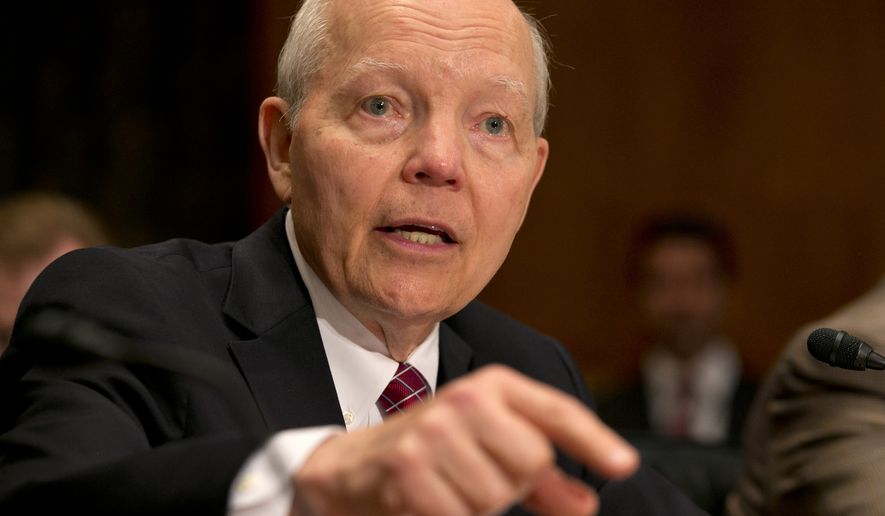More than 700,000 Obamacare customers claimed tax credits for buying health care but didn’t bother to file their taxes, potentially jilting the government out of $2 billion in bogus payments, the Senate’s senior lawmaker said Monday.
Sen. Orrin G. Hatch, chairman of the Finance Committee and president pro tempore of the Senate, demanded the inspector general investigate the recalcitrant taxpayers and look at the IRS’ own systems for trying to track down tax cheats when it comes to Obamacare.
He said the number of delinquents was “astounding.”
IRS Commissioner John Koskinen alerted Congress to the 710,000 potential cheats in a memo Friday, in which he outlined his agency’s early experience with Obamacare’s first full year of operation in 2014.
All taxpayers were required to file their returns or to request an extension by April 15, and about 7.5 million of those are expected to have claimed a tax credit for buying Obamacare plans, either collecting the credit throughout the year or asking for a reimbursement when they filed this year.
Mr. Koskinen said some of those claimed too little and got a check back from the government at tax time, though even more were overpaid during the year and owed money back under Obamacare.
They had to repay an average of $800.
Then there were those who were overpaid by thousands of dollars. Under Obamacare, the government couldn’t go after all of the money. The IRS calculated that nearly $350 million in overpayments won’t be collected.
As for the 710,000 delinquents, he said they’re being told to file a return within 30 days.
“It is not unusual for the IRS to follow up with taxpayers for more information about their returns after April 15th,” he said in his memo to Congress. “This is the first year for this new provision, and we expect that taxpayers will continue to better understand this process as it becomes more routine. We are committed to learning from this experience so that we can improve our processes and enhance the support we provide in the future.”
Mr. Hatch, though, demanded an official audit of the agency’s handling of the delinquent taxpayers.
“A critical element in safeguarding the integrity of insurance subsidies is the reconciliation process that occurs when taxpayers file their tax returns and reconcile subsidies received versus the amount they were in fact due,” he wrote to J. Russell George, Treasury’s inspector general for tax administration, in a letter demanding an investigation.
He said it’s likely that some of the 710,000 delinquent filers are honest mistakes, but said many of them could be fraudulent.
With tax credits averaging $3,400, the senator calculated that the pool of people who’ve ducked the tax system to date received more than $2.4 billion in total subsidies.
Mr. Hatch is particularly skeptical after the Government Accountability Office told his committee that undercover investigators were able to sneak 11 out of 12 fake Obamacare customers into subsidized coverage in 2014, and that all 11 were able to automatically enroll for a second year.
Seto J. Bagdoyan, the GAO’s director of audit services, testified the findings suggest the federal HealthCare.gov marketplace is putting access to coverage before anti-fraud measures.
While congressional Republicans fumed, top Senate Democrats downplayed the findings, saying it didn’t amount to real-world fraud. After all, the fake enrollees didn’t request medical services or file their taxes.
Mr. Hatch said the IRS’ new reporting raises concerns about whether the latter is an adequate safeguard.
For its part, the Department of Health and Human Services has said it employs various tools to verify enrollees, who sign up under penalty of perjury for lying on their applications.
It has noted, for instance, that more than 200,000 people have lost coverage because they could not prove their citizenship or legal residency.
• Tom Howell Jr. can be reached at thowell@washingtontimes.com.




Please read our comment policy before commenting.